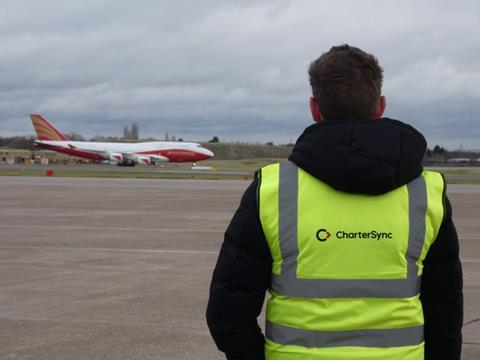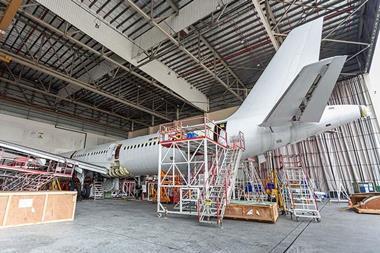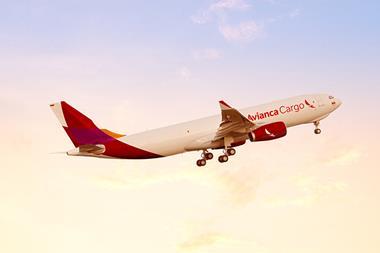In a column for Air Cargo News, CharterSync's Ed Gillett considers the opportunities and risks for freight forwarders, charter desks and operators as cargo-in-the-cabin flights come to an end.
The worst effects of Covid-19 may appear to be over, but the end to disruption in the air cargo market is still a long way over the horizon.
Multiple factors have come together to make it difficult for freight forwarders to ship their goods where, when, and how they want.
Whilst international air passengers may be moving freely, freight forwarders, charter desks, air cargo operators and air cargo booking platforms are still meeting challenges caused by heightened demand, limited bellyhold capacity, congested hubs and rising costs.
Filling the gap between supply and demand is going to be tough: yes, demand for air cargo is continuing to grow apace, but freight capacity is still down nearly 12% [on pre-Covid levels].
During the pandemic, virtually every airworthy cargo aircraft was put into service to meet the demand.
Now, even with Covid-19 in decline, more operators are looking to add cargo aircraft to their fleets to capitalise on the increased demand.
Airlines are placing orders for freighters, while, in turn, leasing companies are buying used passenger aircraft to convert them for freighter use.
Cargo conversions are expected to continue – and increase – in 2022 and beyond, with existing slots for retrofitting cargo conversions booked through 2025.
CIC a much-needed lifeline
A new trial confronting EASA-licensed operators comes into effect at the end of July 2022 when cargo-in-the-cabin (CIC) flights introduced during Covid-19 come to an end.
Greenlit by EASA in 2020, CIC flights allowed operators to carry air cargoes on the seats of passenger aircraft, or to repurpose passenger aircraft as “preighters” by removing seats from the cabin.
This praiseworthy strategy threw a much-needed lifeline to a beleaguered air cargo industry stunned by the reduction in passenger flights, and CIC flights subsequently played a major role in addressing supply chain issues.
To put it into perspective, 60% of CharterSync’s flights between September 2021 and March 2022 were CIC flights.
Unfortunately, EASA’s suspension of the CIC easements will put even more pressure on the air cargo industry – removing an estimated 200 CIC preighters from the market including 63 Airbus A330s and 68 Boeing 777s.
News of this development understandably sparked a flurry of bookings as customers scrambled to secure flights for the third quarter and fourth quarter 2022 – traditionally the busiest period for air cargo.
One unforeseen benefit of employing passenger aircraft as preighters during the pandemic was that they were predominantly more cost effective than cargo aircraft on a cost per kilo basis.
This played a crucial role in mitigating the rising costs of air cargo in the face of the elevated demand landscape.
Sadly, this trend has now been reversed due to recent fuel price increases, which have now rendered passenger aircraft less cost effective than freighter aircraft.
The air cargo charter market has also faced many challenges over this period, and the sector’s need for change was underscored and accelerated by Covid-19.
While rapid change can be painful, it can also mark a change of direction and open up new opportunities: in the air cargo charter industry it meant that freight forwarders became more open to air cargo charter as a concept.
And instead of defaulting to the same big passenger operators year-in, year-out, freight forwarders have begun to reconsider their strategy, using air charter to engage with new operators in new territories, and to conduct business differently.
Growing role for air cargo charter
The air cargo industry is not out of the woods yet, but green shoots are emerging.
The entry of new players into the air cargo market provides much needed choice and flexibility for customers.
Many airlines that had never previously considered cargo now include it as a fundamental part of their business model.
Passenger airlines like British Airways, Emirates, and Qatar Airways all took advantage of the CIC easements and repurposed passenger aircraft as preighters.
Commercial airlines who had traditionally focused on passenger traffic now include freighters as an integral part of their fleet, including operators such as Virgin Airways and Wizz Air.
As air cargo demand continues to outstrip supply, air cargo charter must step in and play a growing role.
The pandemic has highlighted the importance of air cargo charter to the supply chain eco-system.
Whether used as a standalone service or as a complement to a scheduled service, air cargo charter can offer unequalled speed, flexibility, precision, and ultimately peace of mind to customers.
Ed Gillett is co-founder and director of CharterSync, an award-winning and first of its kind digital air cargo charter business. A lifelong flying enthusiast and commercial A321 pilot, Gillett launched the CharterSync air cargo charter booking platform with co-founder Simon Watson in 2019. Simplifying, accelerating and streamlining the air cargo charter process, CharterSync’s technology removes the need for inefficient emails and phone calls by centralising all stages of a cargo charter into one central and easy to use system.
















